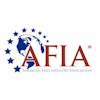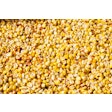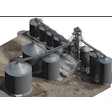January offers businesses a timely opportunity to assess global trends and their impact on operations, for example, the European Union's Deforestation Regulation (EUDR).
The EUDR is a landmark initiative designed to diminish global deforestation. It mandates that imported products, such as soy, beef, cocoa, coffee, timber and other commodities be sourced from land that has remained free of deforestation since December 31, 2020.
Originally scheduled to take effect on January 1, 2025, the European Commission has proposed a 12-month delay to clarify its framework and address concerns raised by affected industries.
U.S. grain and oilseed suppliers exporting to the EU face substantial hurdles with the EUDR. Compliance requires sophisticated traceability systems, such as geolocation and mapping technologies to verify product origins and ensure deforestation-free land use. This process will increase administrative responsibilities and may cause delays if documentation is incomplete.
Supply chains will also require adjustments, as EUDR-compliant products must be segregated from non-compliant ones. This will affect storage, transportation and logistics systems. Additionally, farmers will need to avoid cultivating on land cleared after December 2020 to meet the new standards, further adding to the operational burden.
While the EUDR presents challenges, it also offers significant opportunities for U.S. exporters. Products verified as deforestation free may command premium prices in the EU, rewarding early compliance. Investments in traceability and sustainable practices can also open new market opportunities beyond Europe, as more regions adopt similar environmental goals.
Early adoption of EUDR standards can establish U.S. exporters as trusted leaders in sustainable trade, strengthening their competitive position globally.
Despite its complexities, the EUDR underscores a growing global commitment to sustainability. For U.S. grain and oilseed suppliers, proactive adaptation will be key to minimizing disruptions and ensuring long-term success in sustainability-focused markets. By acting now, businesses can position themselves for leadership in an increasingly environmentally conscious world.













